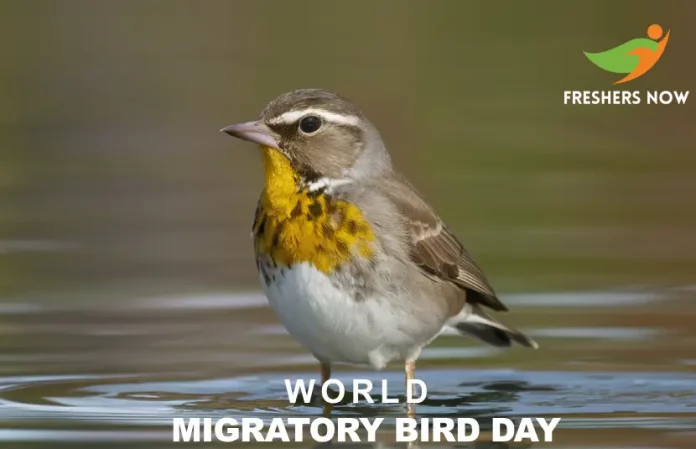
World Migratory Bird Day 2024 (WMBD) is an annual event celebrated globally to raise awareness about the importance of migratory birds and the need for their conservation. In this year it falls on 11th May 2024. Held on the Second Saturday of May and October each year, WMBD highlights the remarkable journeys undertaken by millions of birds across continents and emphasizes the need for international cooperation to protect their habitats.
Understanding Migratory Birds
Migratory birds are species that travel long distances between their breeding and wintering grounds, often spanning thousands of kilometers. These journeys are driven by factors such as changes in temperature, food availability, and breeding cycles. Each year, billions of birds undertake these incredible migrations, navigating through various obstacles to reach their destinations.
The Significance of World Migratory Bird Day
WMBD serves as a platform to educate people about the importance of migratory birds in maintaining ecological balance. These birds play crucial roles in pollination, seed dispersal, pest control, and nutrient cycling, benefiting ecosystems worldwide. Additionally, they serve as indicators of environmental health, with declines in migratory bird populations signaling broader ecological issues.
Conservation Challenges
Despite their ecological significance, migratory birds face numerous threats throughout their journeys. Habitat loss, climate change, pollution, illegal hunting, and collisions with buildings and power lines are among the primary challenges they encounter. These threats not only endanger individual species but also disrupt entire ecosystems and biodiversity.
International Cooperation for Conservation
Conserving migratory birds requires coordinated efforts across borders. International treaties such as the Ramsar Convention and the Convention on Migratory Species (CMS) facilitate cooperation among countries to protect critical habitats and implement conservation measures. Collaborative initiatives, such as the African-Eurasian Migratory Waterbird Agreement (AEWA) and the East Asian-Australasian Flyway Partnership, aim to safeguard migratory routes and stopover sites.
Celebrating WMBD Around the World
World Migratory Bird Day 2024 is celebrated through various events and activities organized by governments, conservation organizations, and communities worldwide. These include birdwatching excursions, educational workshops, art competitions, and awareness campaigns. Through these initiatives, people of all ages are encouraged to learn about migratory birds and contribute to their conservation.
Engaging Communities in Conservation
Engaging local communities is essential for the success of migratory bird conservation efforts. By raising awareness about the value of these birds and their habitats, communities can become stewards of conservation, actively participating in habitat restoration, monitoring, and advocacy. Sustainable tourism initiatives centered around birdwatching also provide economic incentives for conservation.
The Role of Technology in Conservation
Advancements in technology, such as satellite tracking, GPS tagging, and citizen science platforms, have revolutionized the study and conservation of migratory birds. Researchers can now monitor bird movements in real time, identify critical habitats, and assess the effectiveness of conservation measures. Citizen science projects allow enthusiasts to contribute valuable data to scientific research.
Taking Action for Conservation
As individuals, there are several ways we can contribute to the conservation of migratory birds. Simple actions like creating bird-friendly habitats in our gardens, using bird-safe glass on buildings, reducing plastic pollution, and supporting conservation organizations can make a significant difference. By advocating for policies that protect migratory bird habitats and promoting sustainable practices, we can help ensure a brighter future for these avian travelers.
Conclusion
World Migratory Bird Day is not just a celebration of nature’s global travelers but also a reminder of our collective responsibility to protect them. By raising awareness, fostering international cooperation, and taking concrete actions for conservation, we can safeguard migratory birds and the ecosystems they inhabit for generations to come. Let us unite in our efforts to ensure that these majestic creatures continue to grace our skies for years to come.
Stay updated with the latest current affairs and insightful blog posts by following Freshersnow.
| You Can Also Check | |
| Current Affairs | |



